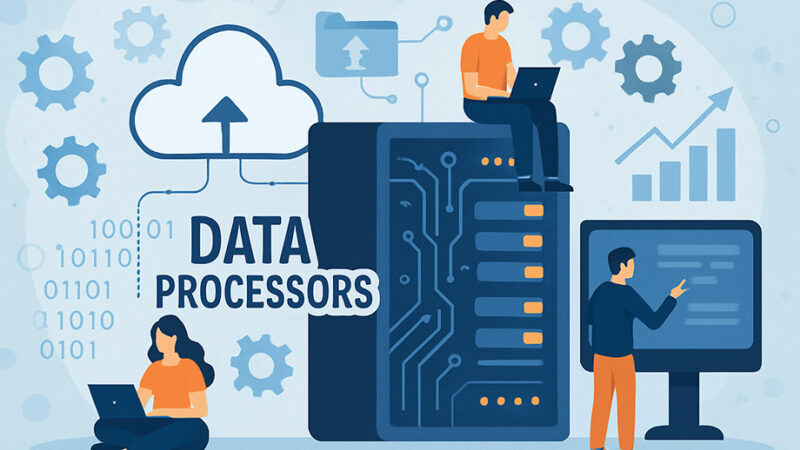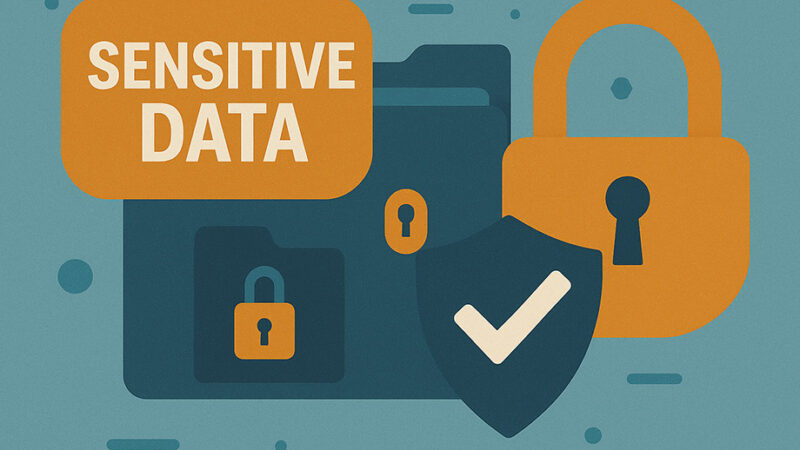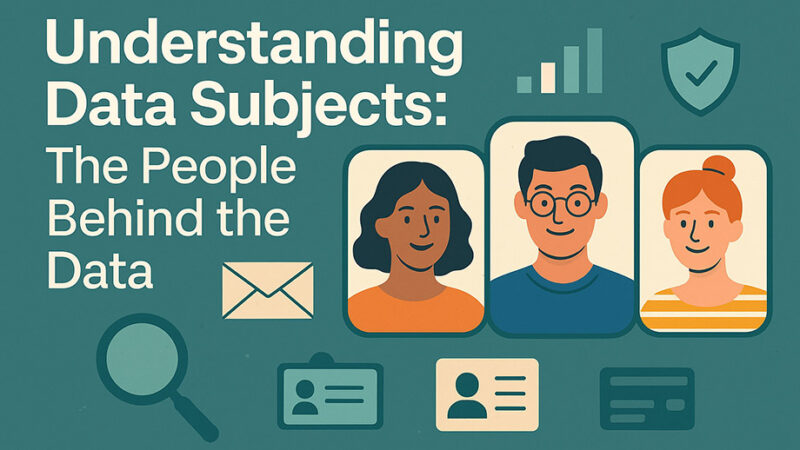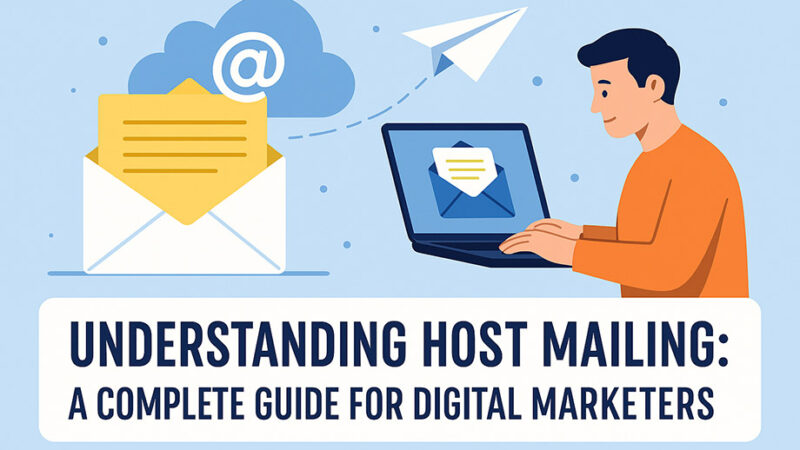Understanding Data Controllers: The Foundation of Data Protection
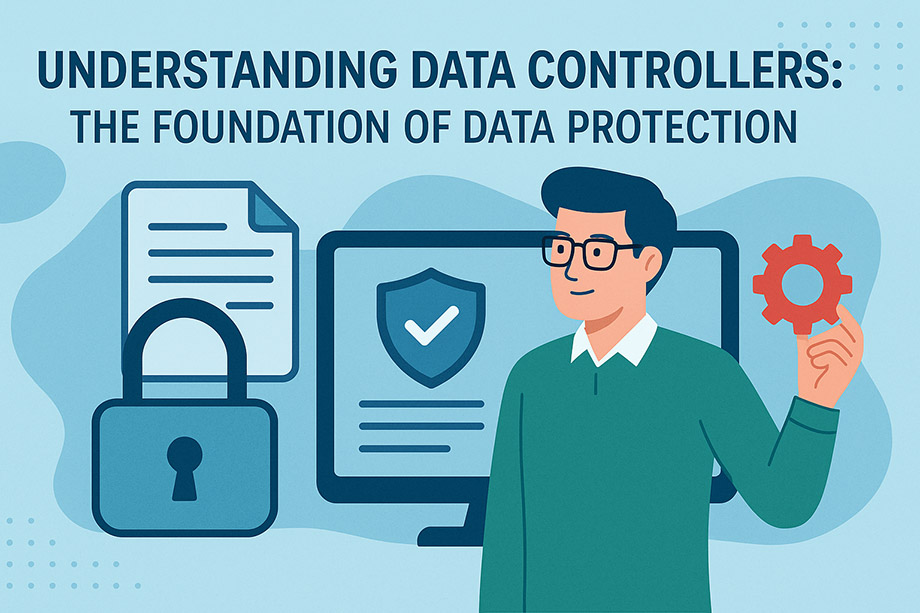
In our increasingly digital world, personal data flows through countless systems, applications, and organizations every day. At the heart of data protection law lies a fundamental concept that determines who bears responsibility for this data: the Data Controller. Understanding this role is crucial for any organization that handles personal information.
What is a Data Controller?
A Data Controller is a person who, either alone or jointly or in common with other persons, determines the purposes for which and the manner in which any personal data are, or are to be, processed. This definition, while seemingly straightforward, carries profound implications for how organizations must approach data protection and privacy compliance.
The key elements of this definition are:
Decision-Making Authority: The data controller has the power to decide why personal data is collected and how it will be used.
Purpose Determination: They establish the specific reasons for processing personal data, whether for marketing, customer service, legal compliance, or other business objectives.
Manner of Processing: They decide the methods, systems, and procedures used to handle the data.
Individual or Collective Role: The controller can be a single person, an organization, or multiple entities working together.
The Significance of Being a Data Controller
Being designated as a data controller isn’t merely a technical classification – it’s a role that comes with substantial legal responsibilities and liabilities under data protection regulations such as the General Data Protection Regulation (GDPR), California Consumer Privacy Act (CCPA), and other privacy laws worldwide.
Primary Responsibilities
Lawful Basis Establishment: Data controllers must identify and maintain a lawful basis for all personal data processing activities. This could be consent, legitimate interest, contractual necessity, or other legally recognized grounds.
Purpose Limitation: Controllers must ensure data is collected for specified, explicit, and legitimate purposes and not processed in ways incompatible with those purposes.
Data Minimization: They must ensure that personal data processed is adequate, relevant, and limited to what is necessary for the specified purposes.
Accuracy Maintenance: Controllers are responsible for keeping personal data accurate and up to date, taking reasonable steps to correct or delete inaccurate information.
Storage Limitation: Personal data must not be kept longer than necessary for the purposes for which it was collected.
Data Controller vs. Data Processor: Key Distinctions
Understanding the difference between data controllers and data processors is essential for proper compliance:
Data Controller
- Determines the purposes and means of processing
- Makes decisions about what data to collect and how to use it
- Bears primary legal responsibility for compliance
- Must ensure lawful basis exists for processing
- Responsible for individual rights fulfillment
Data Processor
- Processes personal data on behalf of the controller
- Acts only on documented instructions from the controller
- Cannot determine purposes or essential means of processing
- Has specific obligations but secondary liability
- Must notify controller of data breaches
Types of Data Controllers
Sole Controller
A single organization that independently determines the purposes and means of processing. Most businesses operate as sole controllers for their customer databases, employee records, and business operations data.
Joint Controllers
Two or more controllers that jointly determine the purposes and means of processing for the same personal data. For example, two companies collaborating on a marketing campaign where both have input on how customer data is used.
Controllers in Common
Multiple entities that process the same personal data for the same purposes but make independent decisions about the means of processing. This often occurs in corporate group structures where subsidiaries share customer data.
Practical Examples of Data Controllers
E-commerce Company
An online retailer acts as a data controller when it:
- Decides to collect customer email addresses for order confirmation
- Determines to use purchase history for personalized recommendations
- Chooses to retain customer data for three years for warranty purposes
- Implements specific security measures to protect customer information
Healthcare Provider
A hospital serves as a data controller when it:
- Establishes patient record keeping procedures
- Determines what medical information to collect and store
- Decides how long to retain patient records
- Sets access controls for medical staff
Marketing Agency
A marketing agency may be a data controller when it:
- Decides to collect website visitor data for campaign optimization
- Determines the criteria for audience segmentation
- Chooses analytics tools and measurement methods
- Establishes data retention periods for campaign data
Key Obligations and Rights Management
Data controllers must implement comprehensive systems to fulfill individual rights under data protection laws:
Right to Information
Controllers must provide clear, transparent information about data processing through privacy notices that explain what data is collected, why, how it’s used, and individual rights.
Right of Access
Individuals can request copies of their personal data and information about how it’s being processed. Controllers must respond within specified timeframes (typically 30 days under GDPR).
Right to Rectification
Controllers must correct inaccurate personal data promptly when requested by individuals or when they become aware of inaccuracies.
Right to Erasure
Also known as the “right to be forgotten,” controllers must delete personal data in certain circumstances, such as when it’s no longer necessary for the original purpose.
Right to Restrict Processing
In specific situations, controllers must limit how they process personal data while maintaining its storage.
Right to Data Portability
For certain types of processing, controllers must provide personal data in a structured, commonly used format that allows individuals to transfer it to another controller.
Compliance Framework for Data Controllers
Data Protection Impact Assessments (DPIAs)
Controllers must conduct DPIAs for processing activities that pose high risks to individual rights and freedoms, such as large-scale profiling or processing sensitive data categories.
Records of Processing Activities
Controllers must maintain detailed records of their processing activities, including purposes, data categories, recipients, retention periods, and security measures.
Data Protection Officer (DPO) Appointment
Certain controllers must appoint a DPO, particularly public authorities or organizations whose core activities involve large-scale systematic monitoring or processing of sensitive data.
Breach Notification
Controllers must notify supervisory authorities of personal data breaches within 72 hours when feasible and inform affected individuals when the breach poses high risks to their rights and freedoms.
Risk Management and Accountability
Privacy by Design and Default
Controllers must implement appropriate technical and organizational measures to ensure and demonstrate compliance, integrating data protection principles into all processing activities from the outset.
Vendor Management
When working with data processors, controllers must ensure appropriate contracts are in place that clearly define responsibilities, security requirements, and breach notification procedures.
Regular Audits and Reviews
Controllers should regularly assess their data processing activities, update privacy notices, review retention policies, and ensure ongoing compliance with evolving regulations.
International Considerations
Data controllers operating across borders must navigate complex jurisdictional requirements:
Cross-Border Transfer Mechanisms: Controllers must implement appropriate safeguards when transferring personal data internationally, such as adequacy decisions, standard contractual clauses, or binding corporate rules.
Multiple Regulatory Compliance: Controllers may need to comply with various data protection laws simultaneously, requiring comprehensive understanding of different requirements and harmonized approaches where possible.
Challenges and Best Practices
Common Challenges
- Determining controller status in complex business relationships
- Managing joint controller arrangements and shared responsibilities
- Implementing effective consent mechanisms
- Balancing business needs with data protection requirements
- Keeping pace with evolving regulatory landscapes
Best Practices
- Conduct regular data mapping exercises to understand all processing activities
- Implement robust governance frameworks with clear roles and responsibilities
- Maintain comprehensive documentation of all data processing decisions
- Establish clear policies for individual rights requests
- Invest in staff training and awareness programs
- Engage with legal and privacy professionals for complex determinations
The Future of Data Controller Responsibilities
As technology continues to evolve, data controller responsibilities are becoming increasingly complex. Emerging technologies like artificial intelligence, Internet of Things devices, and blockchain systems present new challenges for determining controllership and ensuring compliance.
Controllers must stay ahead of these developments by:
- Monitoring regulatory developments and guidance
- Adapting policies and procedures to new technologies
- Engaging with industry associations and privacy professionals
- Implementing flexible compliance frameworks that can evolve with changing requirements
Conclusion
The role of data controller represents the cornerstone of modern data protection law. By determining the purposes and means of personal data processing, controllers shoulder the primary responsibility for ensuring individual privacy rights are respected and protected.
Understanding and properly implementing data controller responsibilities isn’t just about legal compliance – it’s about building trust with customers, employees, and partners. Organizations that embrace their role as responsible data stewards position themselves for sustainable success in an increasingly privacy-conscious world.
Whether you’re a small business collecting customer emails or a multinational corporation managing complex data ecosystems, recognizing your role as a data controller and implementing appropriate safeguards is essential for both legal compliance and ethical business practice. The investment in proper data protection frameworks pays dividends in customer trust, regulatory compliance, and operational resilience.


